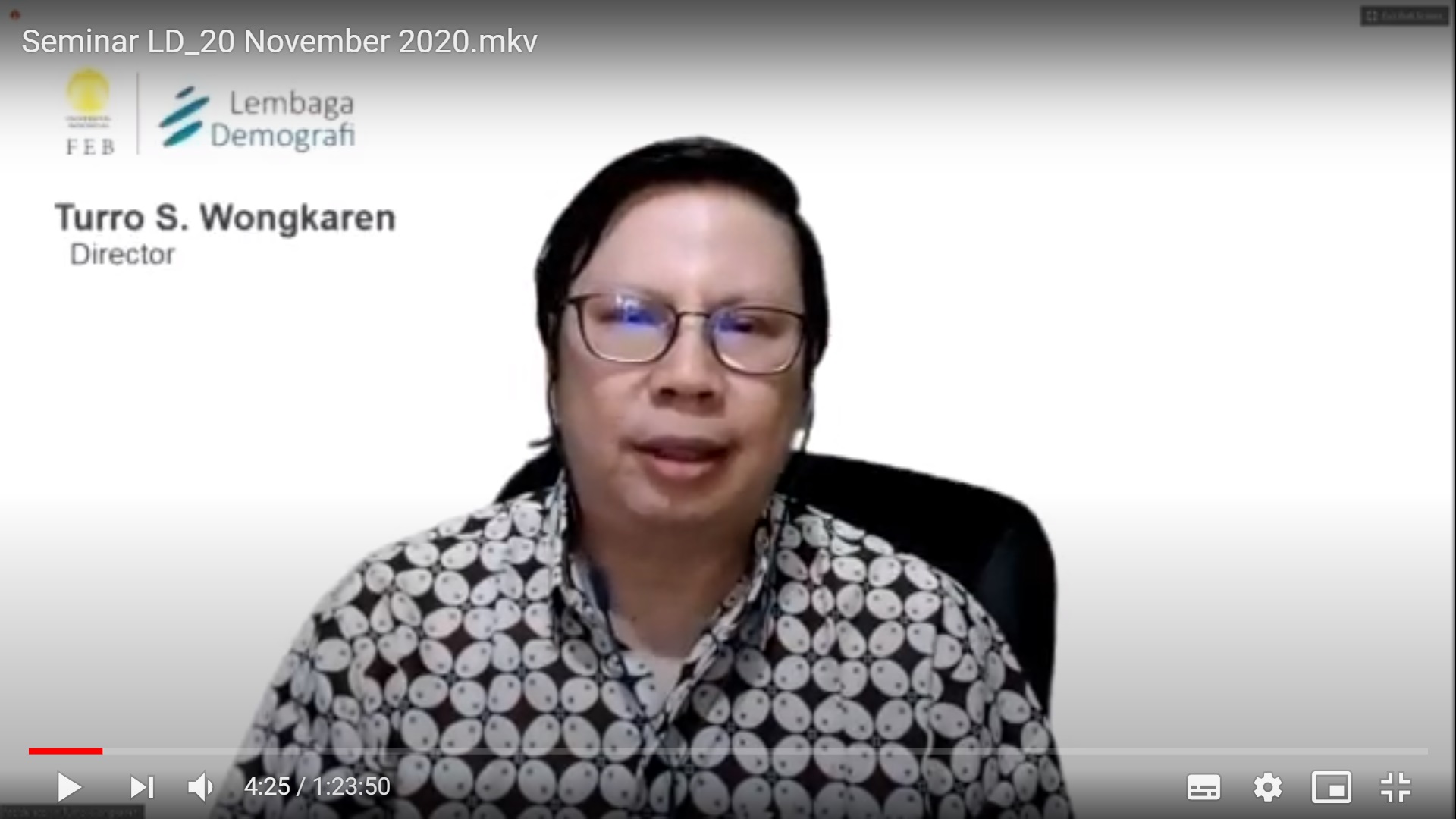Lembaga Demografi FEB UI: Launching of the Joint Policy Paper – Modernization of Distribution of Social Assistance through Government to Person (G2P) Fintech Solutions
Hana Fajria – Public Relations of FEB UI
Depok – (20/11/2020) The National Team for the Acceleration of Poverty Reduction (TNP2K) in collaboration with the Indonesian FinTech Association (AFTECH) and the Lembaga Demografi of the Faculty of Economics and Business, Universitas Indonesia, launched online a Joint Policy Paper titled “Modernization of Government to Person (G2P) through Financial Technology (FinTech) Solutions in Indonesia” on Friday, 20 November 2020.
The event presented Bambang Widianto, Special Staff to the Vice President/Executive Secretary (Ad-Interim) of TNP2K; and Budi Gandasoebrata, Managing Director of GoPay, Vice Chair of AFTECH as speakers, and moderated by Turro Wongkaren, Head of Lembaga Demografi FEB UI.
Bambang Widianto presented his opinion on improving the mechanism for the distribution of aid and government subsidies by utilizing financial technology (fintech). According to Bambang, the use of fintech with facial biometrics as authentication is the most optimum alternative because it is easy, safe, inexpensive, and does not require a transaction tool such as a debit card, QR code, or smartphone at the beneficiary’s house. The distribution can be conducted at the merchant/store level and does not require a change in behavior from the beneficiary’s side.
“In order for facial biometric fintech to be used for the distribution of government aid and subsidies, it is necessary to prepare an infrastructure for storing and managing biometric data. There is a need for industrial standards for service provision, strengthening regulations and adoption of fintech. Face biometric authentication is being adopted gradually, and does not interfere with the distribution of aid using debit cards,” he explained.
The next speaker, Budi Gandasoebrata, explained the development and role of fintech in the distribution of social assistance and national economic recovery. The development of fintech in Indonesia has seen an increase in the number of fintech operators with legal status, with various models, types and variations of fintech solutions, as well as the use and/or adoption of fintech.
“Fintech players provide quite a lot of benefits in helping the distribution of aid funds. It is undeniable that there are challenges such as internet connectivity and limited smartphone ownership. Presidential Regulation No.56 of 2017 still limits the distribution of social assistance in non-cash alternatives, and people’s preference for cash and low financial literacy and digital literacy,” said Budi.
This policy paper aims to encourage the government to gradually adopt the use of fintech with facial biometric authentication technology, as a tool for distributing government assistance and subsidies to families or households. The policy paper was prepared with the support of the Social Protection Cluster Team of the Lembaga Demografi FEB UI (Diahhadi Setyonaluri, Dinda Srikandi Radjiman, Khalida, and Calvin Aryaputra). (hjtp)
(am)





